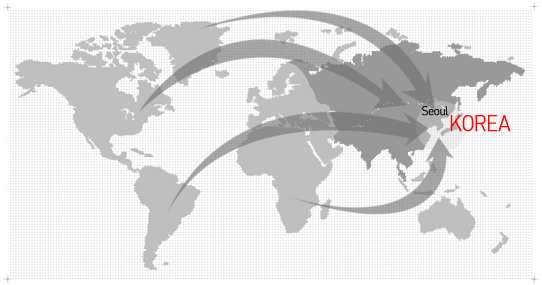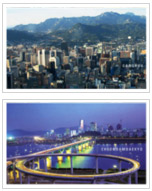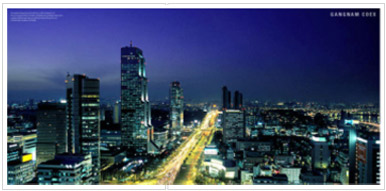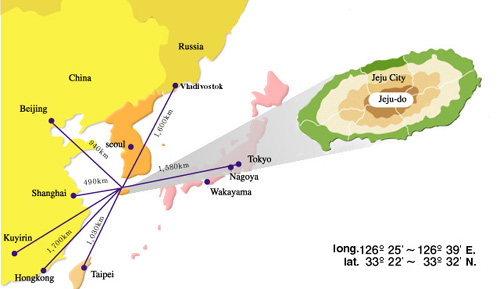About Korea

Korea,
traditionally known as the “Land of the Morning Calm,” is today
a modern, bustling hub of East Asia. It is a peninsula jutting off
of China, and Japan is only two hours away. Despite this close physical
proximity to the neighboring countries, Korea has a distinctive
culture of its own, which has developed during its 5,000 years of
history. The 2002 World Cup Korea/Japan attracted attention from
the international community because it was the first to be held
in Asia and to be staged by two countries.
About Seoul
|
Seoul, the capital of the Republic of Korea, is one of the ten largest cities in the world with a population of over 11 million people living on about 628 square kilometers. The city nestles between two mountain ranges. The Han River flows west to the Yellow Sea and divides the city into two parts. A distinctive characteristic of Seoul is the remarkable ways of yesterday and today blended and its balance to preserve all that is the best in Korea's unique 5,000-year culture. Today, Seoul is the center of the nation's government, education, business, finance, entertainment, art, industry and administration. |
|
|


About Jeju Island

Jeju-do or Jeju Island is one
of the nine provinces of Korea and it is only an hour’s flight
south of Seoul. There are direct flights from Tokyo, Osaka, Nagoya,
Fukuoka, Shanghai and Hong Kong.
As a result of its isolated
location and romantic tropical image, Jeju-do has become a favorite
retreat with honeymooners and tourists. The island has a mild marine
climate. It has four distinct seasons and an average yearly temperature
of 15C.
The island is 73 km wide and 41 km long with a total
area of 1,845 km2. Jeju Island, the largest island in Korea, came
into existence 700 to 1,200 thousand years ago when lava spewed
from a sub-sea volcano and surfaced above the waters. Then 100 to
300 thousand years ago another volcanic eruption that formed Mt.
Halla, which is South Korea’s highest peak.
The island offers
visitors a wide range of activities: hiking on Mt. Halla, catching
sunrises and sunsets over the ocean, viewing majestic waterfalls,
riding horses, or just lying around on the sandy beaches.
![]() Currency
Currency
The Korean Won is the unit of Korean currency. USD $1 is
about KRW 1,027 as of April 2005 Credit cards, e.g. VISA, Master
Card, American Express and Diners Club, are widely accepted in most
restaurants and hotels.
![]() Electricity
Electricity
Outlets for 220 Volts are commonly available in hotels and
other facilities in Korea. Please check the power supply before
using equipment.
![]() Passport
&VISA
Passport
&VISA
Foreigners wishing to visit the Republic of Korea
should obtain a valid passport. Visitors with confirmed round-tickets
can stay for 30days without visas. However, visitors from some countries
should obtain an entry visa before coming to Korea. When uncertain
as to the requirement for entry visa to Korea, please contact the
Korean embassy or a consulate as early as possible. If you are in
need of an individual invitation to the IJCNLP-05, please contact
the secretariat.
For more information, please visit http://www.mofat.go.kr/me/me_a007/me07.jsp
| ||
| ||
| ||
| ||
